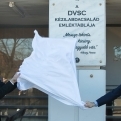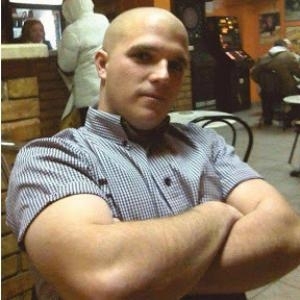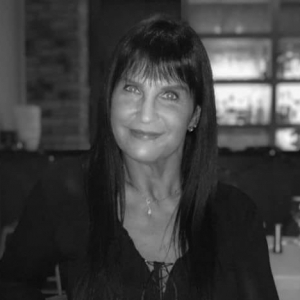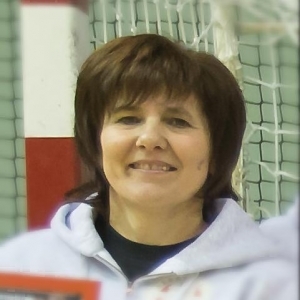A DVSC kézilabdacsalád emléktáblája
Town:
Debrecen, Hungary
Address:
Debrecen, Kassai út 32-34.
Set by:
DVSC Kézilabda Kft., 2019
"Messze tekints. A pálya kicsiny; túl rajta nagyobb vár."
Kölcsey Ferenc



The history of the monument
THE STORY OF THE MEMORIAL PLAQUE:
DVSC’s women’s handball team has always been more than just a sports club. Those who belong to this tight-knit community become part of a big family whose members laugh together and cry together. For more than two decades now, the Imre Hódos Stadium has been the home ground for women’s handball in Debrecen. This is where we, the members of the DVSC handball family come together, making this place truly our second home. Remembrance is part of being a family. With this virtual memorial plaque we would like to honor the memory of those who have contributed tremendously to the achievements of our club, either as players, leaders, or as fans, but sadly, are no longer among us.
THE STORY OF THE DVSC HANDBALL TEAM:
The story of DVSC’s women’s handball team began on May 1, 1948. That was when Ferenc Bokor, finance controller for the Hungarian State Railways (MÁV) directorate recruited handball-loving girls, most of whom were daughters of MÁV employees. The newly formed team’s first game was not exactly a success, as Békéscsaba Lokomotív beat their Debrecen counterparts 13 to 1. Later on, however, the group soon named Lokomotív (hence the nickname “Loki”) began to exhibit their strength more and more often. In 1955, the team now called “Törekvés” (meaning aspiration, pursuit) came in first place the national mini-championship. Unfortunately, a few years after winning the gold medal the team (then again called DVSC) lost its position in the top professional league. It took them nearly two decades, but they worked their way back into the league in 1979. A twist of fate perhaps, but by then the team had been renamed again, to Loki DMVSC, and eventually it was under this name that the team would hold on to its championship. First, the team cemented their position among the best, and then in 1981, under the leadership of Ákos Komáromi, the most glorious period in the team’s life thus far began. The legendary master, whose name has been engraved in the club’s history, led the formerly struggling team to podium within a couple years, and Debrecen won the Hungarian People’s Republic Cup in 1985. By the mid-‘80s Loki had become the most popular and successful team of the city and the region. Their second cup in 1987 and the victorious year that followed still live vividly in the memory of red-white fans. The team, still under the name of DMVSC, won the championship. By that time they had already been through their first European Cup final. In the 1985-86 IFH Cup they lost the final to the East German SC Leipzig. Debrecen fans soon got a taste for international competitions as in the late ‘80s and early ‘90s three more MK trophies were put on the team’s display. More European finals followed.
In the 1989/90 season they didn’t stand a chance against Rostselmash Rostov in the EHF final, but within the same series in 1992, with visitor goals only, ŽRK Radnički Belgrade won the golden battle.
Two years later, still in the EHF Cup, the curse of visitor goals struck once again. That was how the Danish Viborg stole the trophy away from the DVSC. They had to wait one more year to be compensated for the loss, when their opponent in the EHF final was the Norwegian Baekkelaget Oslo. Visitor goals were no longer a curse for Loki. They won their first European cup, after which thousands celebrated the girls arriving at Debrecen Airport. In the following year the DVSC did what no other team in the history of women’s EHF Cup: they defended their title against the Norwegian Larvik HK, thanks to more goals scored as visitors. After the political system change in Hungary, DVSC suffered like most other major professional associations. The club was discontinued, but the DVSC handball team remained. There was an obvious demand from fans, and the city stood by DVSC Kézilabda Kft. As well. Loki pulled through, moreover, they played in the Hungarian National Cup final. The team remained close to the top during the next decade, and after a local entrepreneur joined in as a majority owner, they played two championship finals and took part in the Champions League group as well. After that, the team fell apart. The city’s local government offered their help in the time of crisis, as they have been continuously doing so ever since. Support from friends was equally important, because it is partly thanks to their loyalty that after a 7th place in 2015, the team scored 4th place just one year later, and 3rd place in the Hungarian National Cup the following season.
Naturally, DVSC will not forget about its notable people from the past. Members of the 1987 Champion Team and winning groups of the 1995 and 1996 EHF Cup are remembered as “DVSC LEGENDS” and hold lifetime passes. They regularly show up to cheer for their juniors from the stands of the Hódos stadium. The club celebrates anniversaries to greet those present and to remember those who can no longer be among us.
THE STORY OF THE MEMORIAL PLAQUE:
DVSC’s women’s handball team has always been more than just a sports club. Those who belong to this tight-knit community become part of a big family whose members laugh together and cry together. For more than two decades now, the Imre Hódos Stadium has been the home ground for women’s handball in Debrecen. This is where we, the members of the DVSC handball family come together, making this place truly our second home. Remembrance is part of being a family. With this virtual memorial plaque we would like to honor the memory of those who have contributed tremendously to the achievements of our club, either as players, leaders, or as fans, but sadly, are no longer among us.
THE STORY OF THE DVSC HANDBALL TEAM:
The story of DVSC’s women’s handball team began on May 1, 1948. That was when Ferenc Bokor, finance controller for the Hungarian State Railways (MÁV) directorate recruited handball-loving girls, most of whom were daughters of MÁV employees. The newly formed team’s first game was not exactly a success, as Békéscsaba Lokomotív beat their Debrecen counterparts 13 to 1. Later on, however, the group soon named Lokomotív (hence the nickname “Loki”) began to exhibit their strength more and more often. In 1955, the team now called “Törekvés” (meaning aspiration, pursuit) came in first place the national mini-championship. Unfortunately, a few years after winning the gold medal the team (then again called DVSC) lost its position in the top professional league. It took them nearly two decades, but they worked their way back into the league in 1979. A twist of fate perhaps, but by then the team had been renamed again, to Loki DMVSC, and eventually it was under this name that the team would hold on to its championship. First, the team cemented their position among the best, and then in 1981, under the leadership of Ákos Komáromi, the most glorious period in the team’s life thus far began. The legendary master, whose name has been engraved in the club’s history, led the formerly struggling team to podium within a couple years, and Debrecen won the Hungarian People’s Republic Cup in 1985. By the mid-‘80s Loki had become the most popular and successful team of the city and the region. Their second cup in 1987 and the victorious year that followed still live vividly in the memory of red-white fans. The team, still under the name of DMVSC, won the championship. By that time they had already been through their first European Cup final. In the 1985-86 IFH Cup they lost the final to the East German SC Leipzig. Debrecen fans soon got a taste for international competitions as in the late ‘80s and early ‘90s three more MK trophies were put on the team’s display. More European finals followed.
In the 1989/90 season they didn’t stand a chance against Rostselmash Rostov in the EHF final, but within the same series in 1992, with visitor goals only, ŽRK Radnički Belgrade won the golden battle.
Two years later, still in the EHF Cup, the curse of visitor goals struck once again. That was how the Danish Viborg stole the trophy away from the DVSC. They had to wait one more year to be compensated for the loss, when their opponent in the EHF final was the Norwegian Baekkelaget Oslo. Visitor goals were no longer a curse for Loki. They won their first European cup, after which thousands celebrated the girls arriving at Debrecen Airport. In the following year the DVSC did what no other team in the history of women’s EHF Cup: they defended their title against the Norwegian Larvik HK, thanks to more goals scored as visitors. After the political system change in Hungary, DVSC suffered like most other major professional associations. The club was discontinued, but the DVSC handball team remained. There was an obvious demand from fans, and the city stood by DVSC Kézilabda Kft. As well. Loki pulled through, moreover, they played in the Hungarian National Cup final. The team remained close to the top during the next decade, and after a local entrepreneur joined in as a majority owner, they played two championship finals and took part in the Champions League group as well. After that, the team fell apart. The city’s local government offered their help in the time of crisis, as they have been continuously doing so ever since. Support from friends was equally important, because it is partly thanks to their loyalty that after a 7th place in 2015, the team scored 4th place just one year later, and 3rd place in the Hungarian National Cup the following season.
Naturally, DVSC will not forget about its notable people from the past. Members of the 1987 Champion Team and winning groups of the 1995 and 1996 EHF Cup are remembered as “DVSC LEGENDS” and hold lifetime passes. They regularly show up to cheer for their juniors from the stands of the Hódos stadium. The club celebrates anniversaries to greet those present and to remember those who can no longer be among us.
Who we remember


Ádám Bai
(1988-2016)


Lajos Dániel Bancsi
(1993-2016)


Antal Baranyai
(1964-2011)


Mária Jeddi
(1965-2021)


Gábor Komáromi
(1980-2015)


Nagy Zsuzsa Lovas
(1961-2016)


Szarvas Éva Mercsné
(1967-2018)


Csabáné Sipos Éva Sándor
(1973-2018)


László Szabó
(1991-2016)
Burning candles (0)
Extinguished candles (46)
Currently no candles are lit.
Goron Jánosné, 2019.03.28
6 year




Lit by Goron Jánosné
Nyugodjatok Békében soha nem feledünk Benneteket !!
Illyésné Kovács Ildikó, 2019.03.28
6 year




Lit by Illyésné Kovács Ildikó
Zádor Lívia, 2019.03.27
6 year




Lit by Zádor Lívia
Zsolt, 2019.03.06
6 year




Lit by Zsolt






















